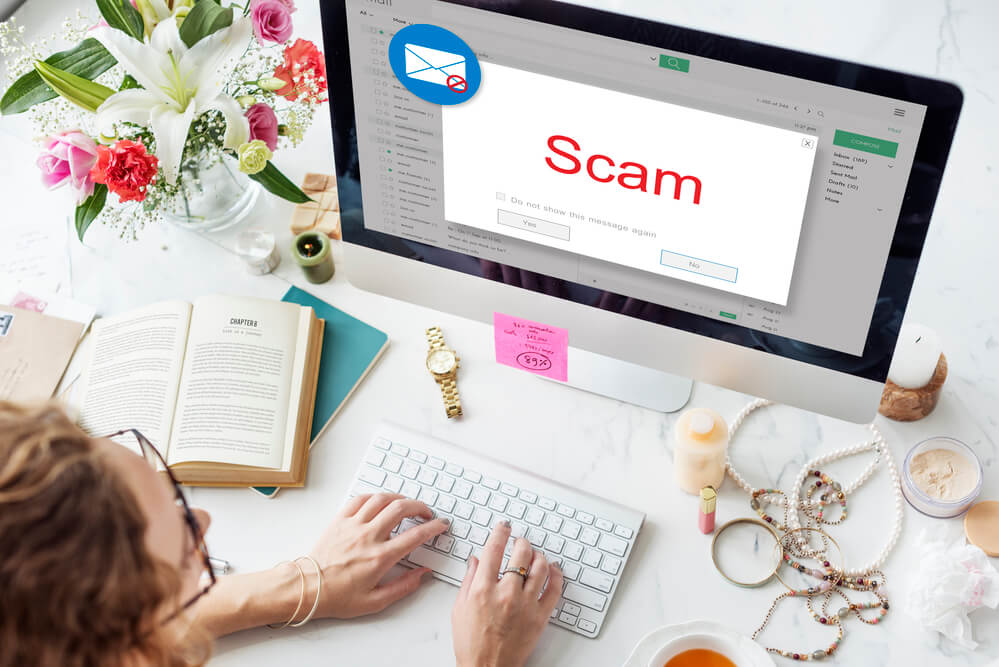About Those “Guest Post” Emails You Keep Getting
Have you received an email or two (or a dozen) with an extremely vague request for a guest blog post on your site — from an unknown person or site? It may or may not mention a backlink. It may or may not mention payment. What is this about? How should you handle it?
In a twist that shocks no one, I’ve got thoughts.
The Guest Post Inquiry

The email comes from a variety of senders, at random times, but they all read (mostly) the same:
SUBJECT: Guest Post Inquiry
Hi there! (Sometimes they include your name, sometimes they don’t.)
I’ve been following your site [URL] for a long time. Your recent post [INSERT BLOG POST URL] was great and insightful! Do you accept guest blog posts on your site? I’d love to share my content with your audience, and I don’t expect payment!
Here are all the things I can write about:
A list that may or may not pertain to your readers/blog/niche.
All I ask for is a link back to my site! I would love to write for your site!
A Sponsored Post By Any Other Name…
Is still a sponsored post.
Guest blogging on other sites is a time-honored tradition among content creators. In the blogging world, it puts you in front of a similar audience and (usually) results in a backlink to your site. Other versions of this are interviews on podcasts and collaborations on YouTube channels. You’re getting your story, your personality, and your platform in front of an audience that has similar interests to the content you create. Guest posting, interviews, and collabs, when done well, work.
And yes, you can still use this as a strategy to grow your audience.
But these emails aren’t that.
This is a scammy way of getting a dofollow link (a powerful backlink that helps sites rank higher in search results). They may offer to pay you and hope you don’t know about tagging your posts as “nofollow” or “sponsored.” But they’re banking on you thinking this is a “legitimate” guest blog post — so they don’t have to pay and they get the link on your site.
How Do You Know It’s Not a Legit Request?

Long ago, I wrote that I respond to (nearly) all requests for links and sponsored posts, even when they seem a little fishy. For the most part, I still do. You truly never know who’s just bad at asking and who’s trying to scam you. That being said, this particular style of email is so common that when I see them, I recognize them for what they are and usually delete immediately. (Because time management is a thing, and Mama ain’t got time for spammy scams.)
Here’s what I look for…
- They don’t use my name or only refer to my website by the URL.
- If they link to a recent post, their “praise” of it doesn’t match the context. Saying, “I love how you share your knowledge with your readers” on a post that’s about me having sex lets me know that you don’t actually know what that post is about.
- The language is similar to multiple other emails I’ve already received, presumably from different people.
- When I check the email address, it comes from an SEO or marketing site.
- The email doesn’t tell me anything about them. Legitimate guest blog post requests are inherently personal — even when they’re promotional in nature. The person trying to get on my site has something they’re trying to share with a wider audience. If I have to ask, “What site is this for?” or “Who are you?” I know they’re casting a wide net just to get backlinks.
- The email includes a list of topic ideas for content that will be “completely unique and a great fit for my audience” but has no direct connection to my blog. They seem to think that any blog about sex will want any content about sex.
- Telling me up front that the content will be unique means 1) there’s a good chance it won’t be and 2) it’s not even being written by them.
Sometimes on a whim, I respond…with my rates and my policy for how I handle sponsored content. If I’m feeling snarky, I don’t mention my nofollow (now “sponsored”) linking policy. I can tell it wasn’t a real guest blog post request by how quickly they say yes to my fee — especially if they ask for a dofollow link.
It’s a Good Sign When You Get These Emails
It’s disappointing to find out that this wasn’t a legitimate request for a guest blog post. Especially once you know that they sent out dozens or hundreds of these emails at a time. Even worse when you discover it’s for a brand you don’t want to be associated with — even if they’re willing to pay your fee (that one always bums me out) — or that they want a dofollow link even though they’re paying. But getting these spammy emails is a good sign, too.
If they’re emailing you, it means you’re showing up in search results, on web ranking websites, and wherever else the SEO/marketing companies look for sites to “partner” with.
Yes, even when your site is small, a backlink has value — which is what makes them so damn powerful. And what makes this “guest post” scam so annoying. These companies hope you won’t know any better, and they’ll get a dofollow link from you that they don’t really deserve.
But now you DO know better…so ignore these emails or give them hell for trying to scam you, whichever suits your personality best.

Thanks for the excellent advice Kayla. Can’t wait till we start getting these types of emails. Even the “scammy” ones. 😊
Yeah, it is kind of a twisted mark of honor when you do get them — it means your website ranking (from whichever arbitrary site they’re using) is higher. But I definitely want you to know what to expect when you get them. 🙂
Great post Kayla – thanks for putting it out there x